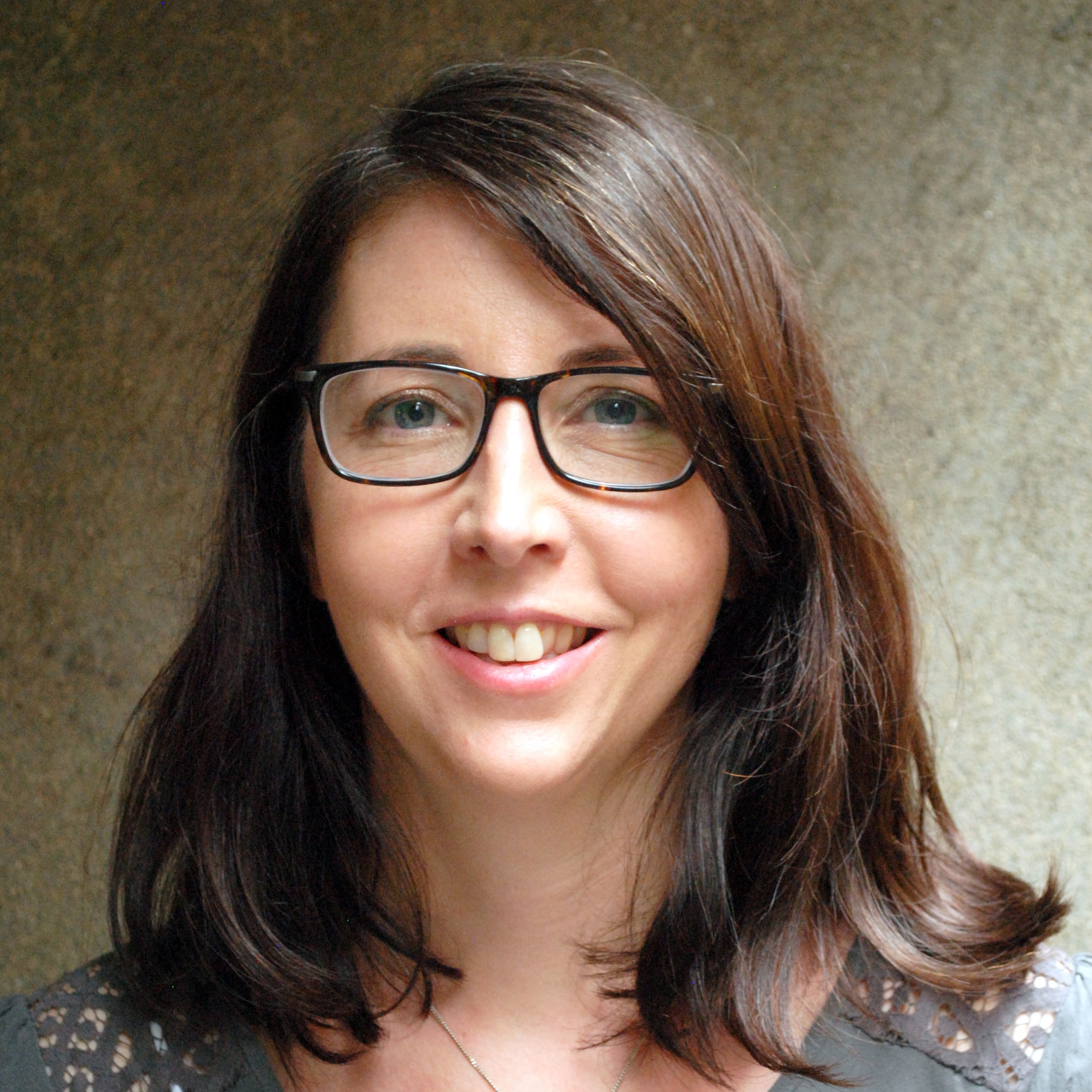On January 1, 2023, the COVID-19 Immunity Task Force (CITF) officially entered a final phase and all activities were completed on March 31, 2024. Previous governance structures of the CITF, including the Executive Committee, Working Parties and co-Chairs completed their mandates on December 31, 2022, with the Leadership Group having finished up its mandate in June 2022.
For the period of January 1, 2023 to March 31, 2024, the CITF Secretariat and the Public Health Agency of Canada (PHAC) established a governance structure that jointly oversaw the management of this final phase.
Secretariat
The Secretariat’s mandate
The Secretariat provided scientific and administrative support to the CITF. It was housed at McGill University’s School of Population and Global Health and was supported by funds from the Public Health Agency of Canada (PHAC).

Executive Director

Scientific Leads & Advisors

Administrative and Scientific Team
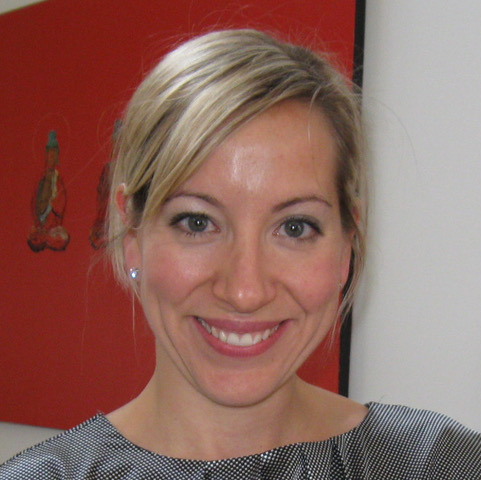
Caroline Phaneuf
Communications & Knowledge Translation
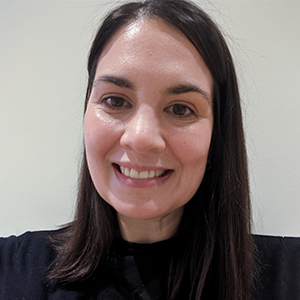
Anna Birnie-Lefcovitch
Senior Manager, Administration and Governance
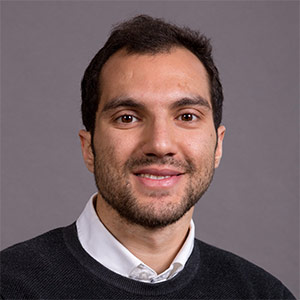
Ahmed Moustafa Ahmed
Research Assistant

Varun Anipindi
Senior Research Advisor

Jaspreet Jain
Research Associate

Carolina Mancini
Project Manager
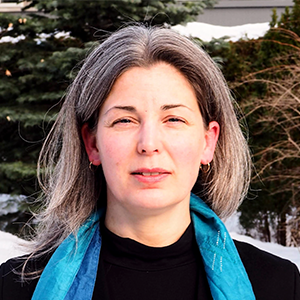
Tanya Murphy
Research Associate

David Nguyen
Senior Awards Officer
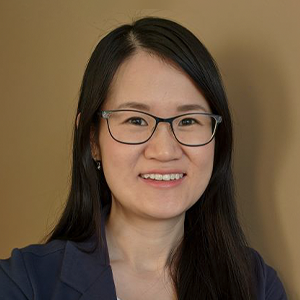
Jeanie Quach
Research Associate

Hanna Swail
Research Assistant
Joanna Merckx
Joanna Merckx, MD, MSc, is an epidemiologist, pediatrician and infectious disease subspecialist and is an affiliate member and course lecturer at McGill University’s Department of Epidemiology, Biostatistics and Occupational Health.
Joanna holds a Master in Epidemiology from McGill University as well as a Doctorate in Medicine with a specialty in pediatrics from the University of Louvain, Belgium. Joanna completed her fellowship training in the subspecialty of pediatric infectious diseases at the McGill University Health Centre and holds a certificate in Tropical Medicine from the Institute of Tropical Medicine in Antwerp, Belgium. She is a PhD in Epidemiology candidate at the University of Amsterdam.
Joanna’s expertise and research focus lay in diagnostics and diagnostic epidemiology in the field of infectious diseases and antimicrobial resistance. She has research experience in clinical epidemiology, vaccinology and meta-analysis work and is involved in pediatric and perinatal epidemiology, including multiple studies investigating SARS-CoV-2 infection, transmission, and dynamics in children in Belgium and in Canada. She was member of the Belgian Pediatric COVID-19 Task Force.
Ahmed Moustafa Ahmed
Ahmed Moustafa Ahmed, M.Eng, earned a Master of Industrial Engineering focusing on the application of statistical methods and optimization techniques to enhance quality of patient care. He has working experience as a Statistician in healthcare, as well as expertise in building data pipelines and machine learning models in the field of Natural Language Processing.
Hanna Swail
Hanna Swail, Bsc, MM, earned a Master of Analytics Management and Bachelor of Microbiology and Immunology from McGill University. She comes to the CITF with experience working in the Artificial Intelligence industry as a Data Analyst, as well as in the pharmaceutical industry as a Quality Assurance Auditor. She has also worked in various microbiological laboratories and has a strong passion for data analysis in health sciences.
Bruce Mazer
Bruce Mazer, MD, is a graduate of McGill’s Faculty of Medicine and Health Sciences and has been a faculty member in the Department of Pediatrics since 1991. He completed his pediatric training at the Montreal Children’s Hospital (MCH), followed by a clinical and research fellowship in allergy and clinical immunology at the University of Colorado.
From 2000 to 2015, he served as Division Head of Allergy and Immunology at the MCH. In 2015, he was appointed Head of Child Health Research at the Research Institute of the McGill University Health Centre (RI-MUHC). In October 2016, he became Interim Executive Director and Chief Scientific Officer of the RI-MUHC, a role he held until July 2020.
Dr. Mazer’s research focuses on the role of B-cells in regulating inflammation in allergic diseases and antibody responses in immune-deficient patients. He has published over 120 papers, and his work has been funded by several major organizations, including the Fonds de Recherche du Québec and the Canadian Institutes of Health Research (CIHR).
Olivia Oxlade
Olivia Oxlade, PhD, is an epidemiologist who completed her Master of Science degree at the London School of Hygiene and Tropical Medicine and her PhD in epidemiology at McGill University. She completed her postdoctoral fellowship at the Harvard School of Public Health.
Dr. Oxlade’s research focuses on global health and tuberculosis (TB). From 2015 until now, Dr. Oxlade has worked at the RI-MUHC, where she served as an Associate Director of the McGill International TB Centre and as Managing Director of the World Health Organization (WHO) Collaborating Centre for TB Research. Over the past decade she has managed many projects funded by different organizations including USAID, WHO, the Bill & Melinda Gates Foundation, CIHR, and the Public Health Agency of Canada. Most recently, she provided oversight to a large CIHR-funded research program focused on TB prevention at the RI-MUHC and managed a multi-centre international trial with sites in Africa, Asia, Brazil, and Canada.
David Buckeridge
David Buckeridge, MD, PhD, FRCPC, is a Professor in the School of Population and Global Health at McGill University in Montreal where he directs the Surveillance Lab, an interdisciplinary group that develops, implements, and evaluates novel computational methods for population health surveillance. He is also the Chief Digital Health Officer at the McGill University Health Center, a medical informatics consultant to the Quebec Institute for Excellence in Health and Social Services, and an Associate Member with Mila. His research and practice focus on the informatics of health surveillance and disease control and he holds a Canada Research Chair (Tier 1) in Health Informatics and Data Science.
In the context of the COVID-19 pandemic, Dr. Buckeridge provides regular projections of health system demand for the Quebec government, is the Scientific lead for Data Management and Analytics for the COVID-19 Immunity Task Force and sits on the expert panel advising the Canadian government about health systems. He is also a technical advisor to the World Health Organization Epidemic Intelligence from Open Sources (EIOS) program on the application of artificial intelligence to global infectious disease surveillance. Dr. Buckeridge has a MD from Queen’s University, a MSc in Epidemiology from the University of Toronto, and a PhD in Biomedical informatics from Stanford University.
Nicholas Birkett
Nicholas Birkett, MD, is an Associate Professor in Epidemiology at the University of Ottawa. He is also Associate Director (epidemiology) of the McLaughlin Centre for Population Health Risk Assessment in Ottawa.
Dr. Birkett obtained his MD from McMaster University in 1974. Following two years of internal medicine residency, he switched to research, obtaining an MSc in Clinical Epidemiology and Biostatistics from McMaster University in 1978. Since then, he has worked in academic epidemiology at the University of Western Ontario, McMaster University and, since 1988, at the University of Ottawa.
He has a strong interest in research methods, quantitative research and systems theory. He has conducted research in multiple areas including Health Service Research in hypertension, application of psychological theory to disease prevention, molecular epidemiology of cancer prevention, and pharmacoepidemiology.
As an educator, he has taught courses in epidemiology, biostatistics, public health, immunization, and communicable disease control. He is the director of the graduate diploma program in Population Health Risk Assessment and Management at the University of Ottawa.
Since the start of the COVID pandemic, he has participated in several groups, assisting in the preparation of projects to assess population level immunity and vaccine safety.
Matthew Pellan Cheng
Matthew Pellan Cheng, MD, obtained his medical degree from McGill University in 2011. He completed his residency in internal medicine at the University of British Columbia, followed by a combined fellowship in infectious diseases and medical microbiology at McGill University. He completed a postdoctoral fellowship at the Harvard Medical School-affiliated Brigham and Women’s Hospital before establishing his clinical research program at the McGill University Health Centre.
Dr. Cheng’s research interests include treating patients with potentially lethal infectious diseases, such as those with severe manifestations of sepsis, bloodstream infections, and opportunistic infections in immunocompromised hosts. His research program focuses on improving outcomes in these conditions by developing novel treatment and diagnostic strategies. His research program is funded by research operating grants from the US National Institutes of Health, the Canadian Institutes for Health Research, and the Australian National Health and Medical Research Council. Dr. Cheng has been the recipient of numerous awards including fellowship grants from the Royal College of Physicians and Surgeons of Canada, the Association of Medical Microbiologists and Infectious Diseases Specialists of Canada, and the Fonds de Recherche Santé Quebec. He was also the recipient of the prestigious Terry Fox Humanitarian Award.
Jesse Papenburg
Jesse Papenburg, MD, is an Assistant Professor of Pediatrics and an Associate Member of the Department of Epidemiology, Biostatistics and Occupational Health at McGill University. He practices pediatric Infectious Diseases and Medical Microbiology at the Montreal Children’s Hospital of the McGill University Health Centre.
Dr. Papenburg obtained his medical degree from McGill University and completed residency and subspecialty training at the Montreal Children’s Hospital. He then completed a research fellowship on the molecular virology of RNA respiratory viruses at Laval University and a MSc in epidemiology at McGill. As a clinician scientist, Dr. Papenburg’s research is on the epidemiology of viral respiratory infections, with a focus on diagnostics to improve treatment and outcomes.
Over the past decade, his multicentred projects have been funded by national, provincial, university and industry grants and endorsed by Canadian research networks. He actively participates in translating his research activities into national and provincial practice guidelines on RSV immunoprophylaxis and influenza antiviral treatment. Since 2019, Dr. Papenburg is also a voting member of the National Advisory Committee on Immunization, developing vaccine recommendations in Canada. Most recently, he has acted as a consultant for the World Health Organization, the Public Health Agency of Canada and the Institut national d’excellence en santé et services sociaux, providing clinical management guidelines for COVID-19.
Cédric Yansouni
Cédric Yansouni, MD, is an Infectious Diseases physician and a Medical Microbiologist at the McGill University Health Centre in Montreal, where he serves as Associate Director of the J.D. MacLean Centre for Tropical Diseases. His research is focused on informing policy on diagnostic tools for infections in low-resource and remote settings, including in Northern Indigenous communities in Canada. This is done through the development and field validation of diagnostics, implementation research, and work at the regulatory and policy level. He has served as Technical Adviser to the World Health Organization (WHO) for prequalification of diagnostics and holds a Chercheur-boursier clinicien Career Award from the FRQS.
Anna Birnie-Lefcovitch
Anna Birnie-Lefcovitch, BA, MA, has a Bachelor of Arts (Honours) in History and Political Science from Victoria College, University of Toronto, and a Master’s degree in Canadian social history from Dalhousie University. Upon graduation she worked in academic publishing and as a public historian for a community archive in Toronto. Ms. Birnie-Lefcovitch has 15 years’ experience in strategic planning, and institutional analysis, and operations within Canadian universities.
Prior to joining the COVID-19 Immunity Task Force, she served as Managing Director of the Marcel Desautels Institute for Integrated Management and as Strategic Initiatives Advisor in the Office of the Vice-Principal (Research and International Relations) at McGill University. She has held several public policy and research assistant positions in the Quebec and Ontario governments, as well as at the University Health Network in Toronto that focused on women’s and children’s health, and domestic violence support services.
She actively volunteers with local and international organizations, most notably as a member of the gala committee for the Allegra Foundation, which presents free and subsidized chamber music concerts to both adults and children in Montreal.
Caroline Phaneuf
Caroline Phaneuf, BA, MA, holds a Bachelor of Arts degree from Concordia University with a double major in journalism and political science as well as a master’s degree in political science from McGill University.
With over 20 years’ experience in communications, marketing, public relations, and broadcast journalism, Ms. Phaneuf has worked for companies, public organizations, and foundations in a variety of industries and has led her own international communications and marketing firm for the past seven years. She brings significant experience in health care to her role, having had numerous clients in the health care industry.
Ms. Phaneuf began her career as a journalist in radio and TV, then went on to work in both external and internal communications, leading corporate affairs and communications teams. These positions leveraged her strengths in strategic communications planning, crisis management, multiple stakeholder relations, media relations, change management communications, and employee engagement.
Tanya Murphy
Tanya Murphy, PhD, earned her PhD in epidemiology and biostatistics from McGill University. Her research focused on social determinants of child health and analytic methods for longitudinal studies, measurement, and missing data. Before her PhD work, Dr. Murphy was a data analyst at the Health Technology Assessment Unit and the Immunodeficiency Service of the Research Institute of the McGill University Health Centre (RI-MUHC).
Candace Miller
Candace Miller, PhD, brings experience from academia and the public sector to the COVID-19 Immunity Task Force (CITF). She holds a PhD in Psychology from the University of British Columbia (UBC), with postdoctoral training at the University of Pennsylvania and the Centre for Molecular Medicine and Therapeutics at UBC.
Dr. Miller brings almost 20 years of public sector work experience to the CITF. She worked as a research and policy analyst, with a public safety focus, for various Government of BC agencies, including the BC Coroners Service and the Independent Investigations Office of BC. Her work helped support changes to seatbelt and motorcycle helmet legislation in BC. More recently, Dr. Miller was Senior Advisor, Science Strategy for the CIHR Institute of Gender and Health where she helped in the development of a funding program on Indigenous Gender and Wellness. Her position at the CITF is a secondment, and she continues to work jointly as Senior Analyst Research Data with the Office of the Vice Principal (Research and Innovation) at McGill.
Varun Anipindi
Varun Anipindi, PhD, brings extensive experience in Immunology research to the COVISD-19 Immunity Task Force. He completed his PhD in Infection & Immunity at McMaster University, with a research focus on understanding mechanisms by which sex hormones influence anti-viral immune responses in the reproductive mucosa. During this time, he developed and established multiple immunoassays incorporating flow cytometry, ELISA, multiplex and cellular co-culture assays to identify the role of dendritic cells and IL-17 in anti-viral infections. He then completed his post-doctoral fellowship, which involved a stage II NIH-funded clinical trial focused on peptide-immunotherapy for protection against cat allergy. Dr. Anipindi also briefly managed the Core Flow Cytometry facility at McMaster University, where he was responsible for facility operations, management and training.
Over the past two years, Dr. Anipindi worked as a Senior Scientist II at Triumvira, a start-up cancer immunotherapy company leveraging the power of engineered T cell therapies to fight against solid tumours. There, his work was critical to establishing key assay platforms within R&D pipelines and he played a crucial role in driving two products to FDA approval for phase I trials.
David Nguyen
David Nguyen, MSc, comes to the COVID-19 Immunity Task Force from McGill University, where he had been since 2010 when he joined the McGill University Office of the Vice-Principal (Research and Innovation). Mr. Nguyen held the role of Senior Grants and Agreements Officer in the Office of Sponsored Research and, most recently, the role of Technology Transfer Manager in the Office of Innovation and Partnerships.
Mr. Nguyen had the unique opportunity to earn his Master of Science degree from Concordia University thanks to a fruitful collaboration between his supervisor and FPInnovations. Funded by Genome Quebec and Genome Canada, he spent two years performing research for FPInnovations that also went towards his thesis. Upon completing his masters, he was offered the opportunity to stay on with FPInnovations which he did for a few years before transitioning to the National Research Council of Canada/Biotechnology Research Institute (BRI). His breadth and depth of experience in the fields of research and innovation make him a welcome addition to the Task Force team.
Carolina Mancini
Carolina Mancini, BSc, has over 10 years of experience in administration in both the private and public sector, the last five of which were as an Executive Assistant at the Research Institute of the McGill University Health Centre (RI-MUHC). She holds a Bachelor of Science degree in Cell and Molecular Biology from Concordia University and holds a Certified Associate in Project Management certification.
Melanie Bokor
Melanie Bokor, BFA, has over 10 years of experience working with leaders in the science and engineering space. She has held positions as an executive assistant, administrator and project manager at fortune 100 companies. Ms. Bokor has a Bachelor’s in Fine Arts from Concordia University and has completed courses in Project Management for Inspired Leaders in HR.
Mariana Bego
Mariana Bego, PhD, is a fundamental scientist and bench researcher, trained in topics spanning from basic virology, molecular epidemiology, and immunology. She first obtained a BS/MS degree in Biotechnology from Argentina, where she worked on molecular epidemiology and serological surveys of various Hantavirus outbreaks, a level 4 pathogen, from 1996-1999. She also holds a MS in Pharmacy, specialized in Forensics DNA and Serology from University of Florida and a PhD in Molecular and Cell Biology from the University of Reno, Nevada. During her research in the United States, she developed tools for serological diagnosis of Hantavirus infections and several ELISA-based assays.
As part of her doctoral thesis, Dr. Bego discovered and named the first-described Human Cytomegalovirus latency protein identified from human samples, LUNA, and characterized its role in viral persistence. She then moved to Canada, where for the last 12 years she did an in-depth study of the role of HIV-1 accessory proteins in the modulation of the adaptive and innate immune responses. During this time, she discovered novel innate immunity evasion mechanism exploited by worldwide epidemic HIV-1 strains absent in its African-restrained endemic counterparts, and described key regulatory features of type-I Interferon innate immunity regulation observed to take place during viral infections and cancer.
Dr. Bego is recipient of several notable awards and recognitions, including Scientific Exchange Fellowship from International Society for Infectious Diseases (2001), Outstanding International Graduate Student award (2005), the IRCM Researcher Excellence Pierre-Bois Award (2015) and was named Personality of the week by Montreal’s daily newspaper La Presse (2015).
Her areas of interest include infectious disease surveys using serological, cellular and molecular diagnostic assays, as well as viral innate and adaptive immune responses regulation.
Marija Djekic-Ivankovic
Marija Djekic-Ivankovic, PhD, MPharm, is a pharmacist who completed her PhD in biochemistry and nutrition at the University of Belgrade in collaboration with McGill University. She obtained her Master’s degree in pharmaceutical sciences at the University of Belgrade where after one year of residency she became a licensed pharmacist. Dr. Djekic-Ivankovic then applied her expertise in the field of nutrition to global health issues at the Institute of Medical Research in Serbia and worked on large scale international projects (EuroFIR, BaseFood and ODIN-VIT D) dedicated to improving health via nutrition research.
Her PhD research focused on Vitamin D in maternal and child health, paved the way to a proposed national vitamin D food fortification program in Serbia. As a part of her postdoctoral experience, she has worked at the RI-MUHC and for Osteoporosis Canada on updating Canadian Osteoporosis Clinical Guidelines. Dr. Djekic-Ivankovic has interest in maternal and child health including advancement of new therapies and nutritional interventions. Her passion is translational research and education for health prevention, promotion and protection.
Jeanie Quach
Jeanie Quach, PhD, received her Bachelor of Health Sciences and PhD in Microbiology and Infectious Diseases from the Cumming School of Medicine, University of Calgary. Her research was focused on elucidating the role of macrophage inflammasomes in host pro-inflammatory responses to Entamoeba histolytica. She has experience with immunoassays and has contributed to several peer-reviewed publications. Dr. Quach was funded by NSERC CREATE for her research and was an active member of community outreach activities with the Host-Parasite Interactions Group.
Mercedes Yanes Lane
Mercedes Yanes Lane, MD, is a family physician who has worked in the field of infectious disease research in Canada, Brazil, and Mexico. Her passion for global health and her commitment to creating more equitable health systems led her to complete a MSc in Public Health at McGill. She has previously worked in the Mexican National Public Health Institute, the McGill Health Centre Research Institute, and the McGill International TB Centre.
Jane Heffernan
Jane Heffernan, PhD, is a Professor of Mathematics & Statistics at York University in Toronto, where she leads the Modelling Infection and Immunity Lab (MI2). She is also a co-Director of the Canadian Centre for Disease Modelling, and she is the Chair of the Mathematical Epidemiology Subgroup for the international Society of Mathematical Biology. Dr Heffernan’s research focus is on multiscale models of infectious diseases, in immunology, tracking the development, maintenance and waning of antibodies and memory cells, and in epidemiology, surveying distributions of immunity against various pathogens in different population subgroups (i.e., age). Dr Heffernan’s research is funded by NSERC, CIHR, MITACS, government contracts, and collaborative initiatives with the pharmaceutical industry.
During COVID-19, Dr Heffernan’s lab has been working to inform infection and vaccination outcomes in patients (immunology), and at the population level (epidemiology). She has also been working on behaviour modelling, to quantify the effects of relaxation in social distancing and PPE wearing, and she has been quantifying healthcare demand (i.e., hospital and ICU beds) in each of the provinces and territories over time.
Tina Smith
Tina Smith, BA, holds a Bachelor of Arts degree in Political Science and French from the University of Windsor.
Ms. Smith has an extensive background in research funding administration with over 10 years’ experience working for not-for-profit organizations, academia and most recently, healthcare. She is experienced in pre-post award activities, contract management and compliance. Prior to joining the COVID-19 Immunity Task Force Secretariat, Ms. Smith held the role of Manager, Grants Administration at Sinai Health.
Jaspreet Jain
Dr. Jain moved to Canada in 2019 and joined the Montreal Clinical Research Institute (IRCM) as a Postdoctoral Research Fellow where her research focused on finding novel cure strategies in the field of HIV and SARS-CoV-2.
Dr. Jain has published over 15 first-author original peer-reviewed articles in mid to high-impact factor journals and has presented her research at numerous national and international conferences. She is also the recipient of prestigious awards, grants and fellowships, including the Biotech Ignition Grant from Government of India, a Postdoctoral Research Fellowship from the Canadian Institute of Health Research (CIHR), a Postdoctoral Research Fellowship from the Fonds de recherche du Québec – Santé (FRQ-Santé), the Young Investigator Award from the Canadian Association for HIV Research (CAHR) and the New Investigator Scholarship from the Conference on Retroviruses and Opportunistic Infections (CROI) to name a few. Dr. Jain is passionate about translational research, finding novel treatment therapies and educating the public about the latest scientific research.
Camille Trapé
Camille Trapé, MSc, recently earned her Master of Science in Public Health from McGill University. Originally from France, she also holds a Master of Science and a Bachelor degree in Biology from the École Polytechnique in Paris.
Ms. Trapé’s engineering background has allowed her to build experience in strategic consulting, in which she specializes in the health sector. She has also worked at the French Ministry of Health and has participated in the development of an operational roadmap for the French Sexual and Reproductive Health Strategy, with a focus on screening and biomedical prevention action plans.
Previous CITF governance structures & members
Executive Committee
The Executive Committee (EC) was originally the CITF’s final decision-making body and it advised and oversaw governance of the CITF. Its mandate concluded on December 31, 2022. The EC comprised two co-Chairs, the Executive Director, a PHAC representative, the Chief Science Advisor to the Prime Minister, and four additional members of the original CITF Leadership Group (LG).
Working Parties
The CITF established Working Parties (WPs) which changed over time. The last iteration of the WPs were in Field Studies, Vaccine Surveillance, and Immune Science and Testing. Their mandate concluded on December 31, 2022.
Leadership Group
The CITF Leadership Group included experts from across Canada in matters related to serologic surveillance, immunology, virology, infectious diseases, public health, and clinical medicine, among other specialties. It also included ex-officio members representing agencies of the Government of Canada, including the PHAC, the Canadian Institutes of Health Research (CIHR), and the office of the Chief Science Advisor to the Prime Minister, as well as representatives of Provincial-Territorial Ministries of Health, and McGill University (host of the Secretariat). The CITF Leadership Group concluded activities in June 2022.
Indigenous Advisory Circle
The work of the Indigenous Advisory Circle (IAC) was initiated in 2020 and formally concluded in 2021.
Co-Chairs and Executive Director
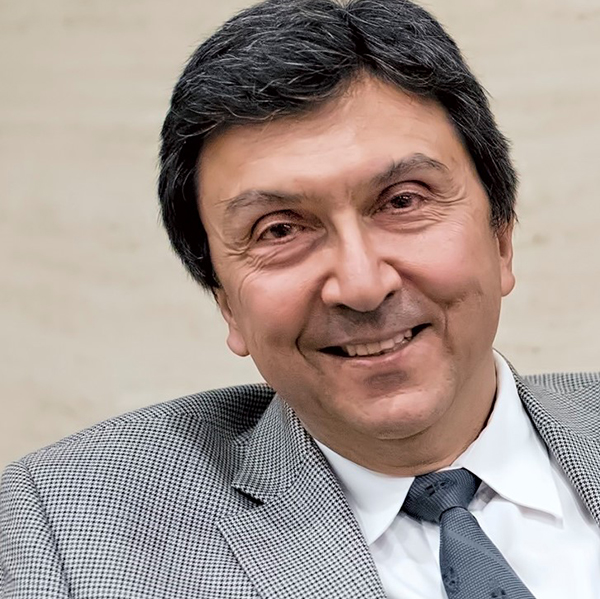
David Naylor
Co-chair
Professor of Medicine and President Emeritus, University of Toronto
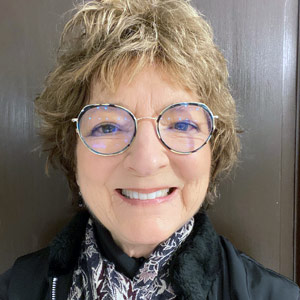
Catherine Hankins
Co-chair
Professor of Public and Population Health, Faculty of Medicine and Health Sciences, McGill University

Timothy Evans
Executive Director
Professor, Director and Associate Dean of the School of Population and Global Health, Faculty of Medicine, McGill University
Members

Mona Nemer
Chief Science Advisor of Canada
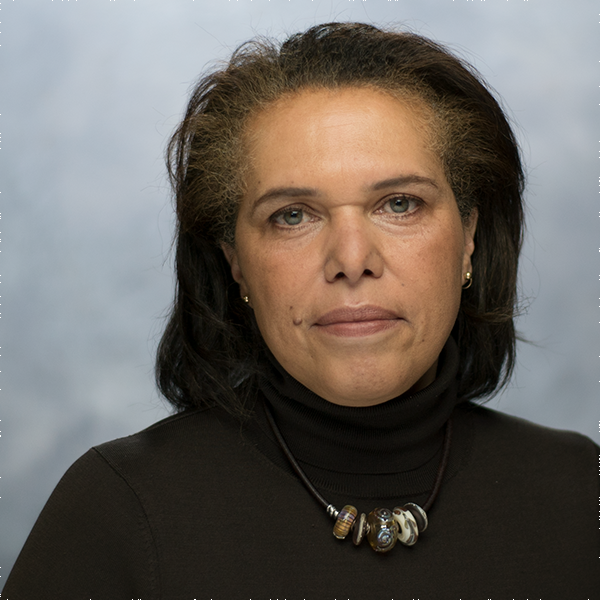
Gina Ogilvie
Professor, School of Population and Public Health, University of British Columbia
Senior Public Health Scientist, BC Centre for Disease Control
Associate Director, Women’s Health Research Institute
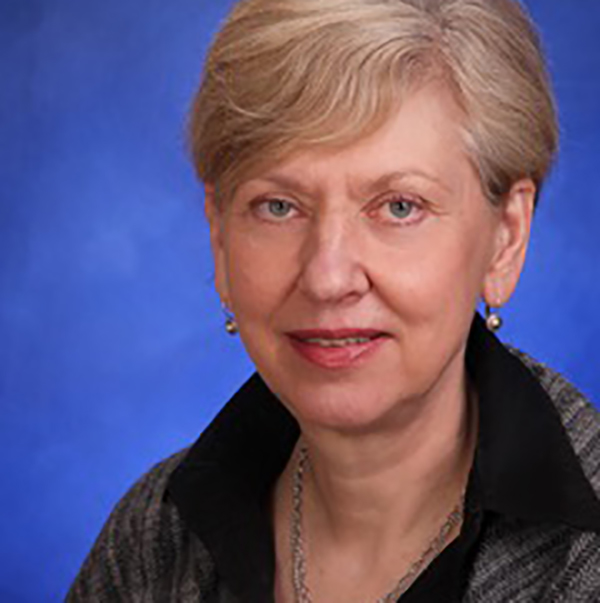
Jutta Preiksaitis
Professor Emerita of Medicine, Division of Infectious Diseases, University of Alberta

Gail Tomblin Murphy
Nova Scotia
Vice President of Research, Innovation & Discovery
Chief Nurse Executive of the Nova Scotia Health Authority
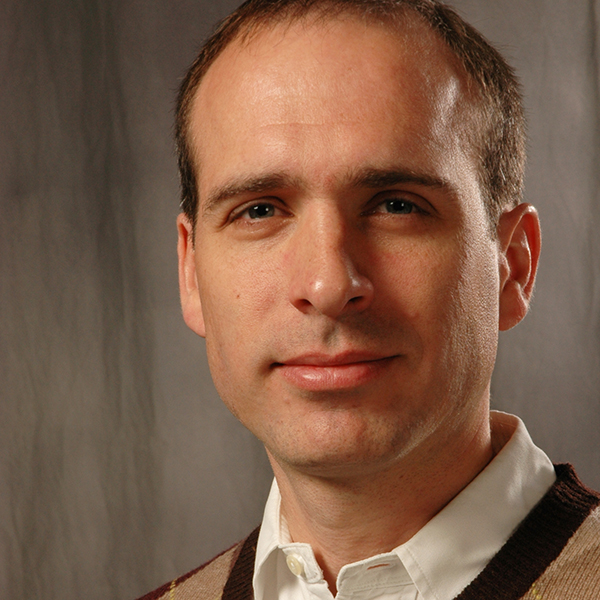
Paul Van Caeseele
Manitoba
Medical Director, Cadham Provincial Laboratory, Manitoba Health, Seniors and Active Living
Professor, Medical Microbiology & Infectious Diseases, and Pediatrics & Child Health, University of Manitoba

Sarah Viehbeck
Chief Science Officer, Public Health Agency of Canada

Executive Committee members
The Executive Committee reports to the Leadership Group and is the final funding decision-making body. It comprises the two Co-Chairs, the Executive Director, and six additional rotating members from the Leadership Group. An important condition for membership is that the individual has no intent to hold or seek funds from the CITF, either as a Principal Investigator or a Co-Investigator on a project being funded by the CITF.
Tim Evans
Cate Hankins
Heather Hannah
David Naylor
Mona Nemer
Howard Njoo
Gina Ogilvie
Jutta Preiksaitis
Gail Tomblin-Murphy
Paul Van Caeseele
David Naylor
Catherine Hankins
Tim Evans
Mona Nemer
Vivek Goel
Charu Kaushic
Gina Ogilvie
Jutta Preiksaitis
Gail Tomblin Murphy

Working Parties
The CITF’s Working Parties (WP) comprise some of Canada’s most respected experts from diverse fields.
Key responsibilities include:
- Curating a list of priority issues and questions related to their WP’s area of focus and producing a gap analysis in order to identify areas of new research required;
- Proposing appropriate modalities (i.e., open versus targeted calls for proposals) for the development of research proposals for the agreed priorities;
- Identifying standards related to study design, measures, tests, etc.;
- Recommending research projects for support to the CITF EC;
- Reviewing interim findings of funded studies and providing feedback to ensure work is keeping pace with the CITF’s strategic goals;
- Reporting on WP activities and funded study progress.
Field Studies Working Party
The Field Studies Working Party (FSWP) focuses on research related to COVID-19 public health, surveillance, epidemiology, and modelling in Canada. Members are chosen from across Canada based on their expertise in the aforementioned areas or other relevant disciplines.
Working Party Leads

James D. Kellner
Pediatric Infectious Disease Consultant
Professor, Departments of Pediatrics, Community Health Sciences & Microbiology, Immunology and Infectious Diseases, Cumming School of Medicine, University of Calgary and Alberta Health Services

Gina Ogilvie
Professor, School of Population and Public Health, University of British Columbia
Senior Public Health Scientist, BC Centre for Disease Control
Associate Director, Women’s Health Research Institute
Vaccine Surveillance Working Party
The Vaccine Surveillance Working (VSWP) focuses on research related to the safety, efficacy, and immunogenicity of COVID-19 vaccines in Canada. Members are chosen from across Canada based on their expertise in the areas of infectious diseases, vaccinology, immunology, epidemiology, public health, and other relevant disciplines.
Working Party Leads
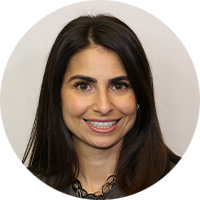
Shelly Bolotin
Ontario
Scientist, Health Protection, Public Health Ontario
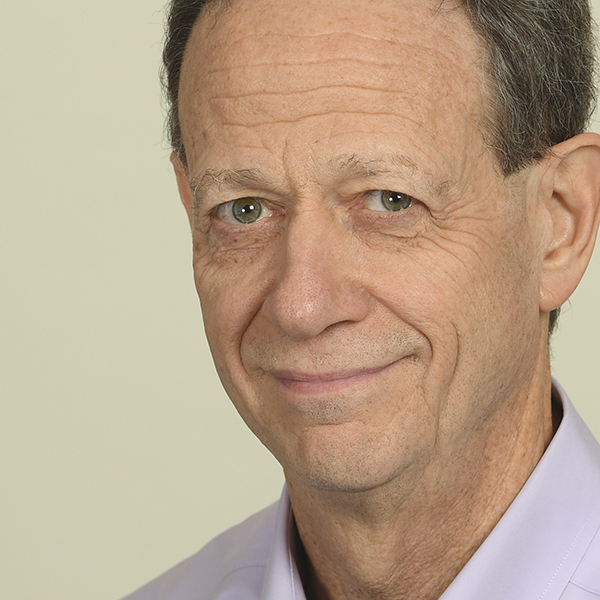
Scott Halperin
Professor, Division of Infectious Diseases, IWK Health Centre, Dalhousie University
Principal Investigator, Canadian Immunization Research Network (CIRN)
Immune Science and Testing Working Party
The Immune Science and Testing Working Party (ISTWP) focuses on research related to COVID-19 immune science and antibody testing in Canada. Members are chosen from across Canada based on their expertise in the areas of immunology, infectious diseases, laboratory medicine (testing), and other relevant disciplines.
Working Party Leads
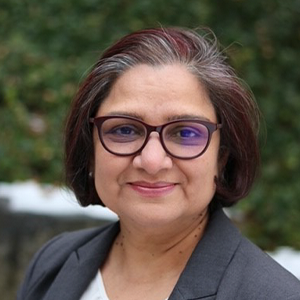
Charu Kaushic
Scientific Director, CIHR-Institute of Infection and Immunity
Professor, Department of Pathology and Molecular Medicine, McMaster University
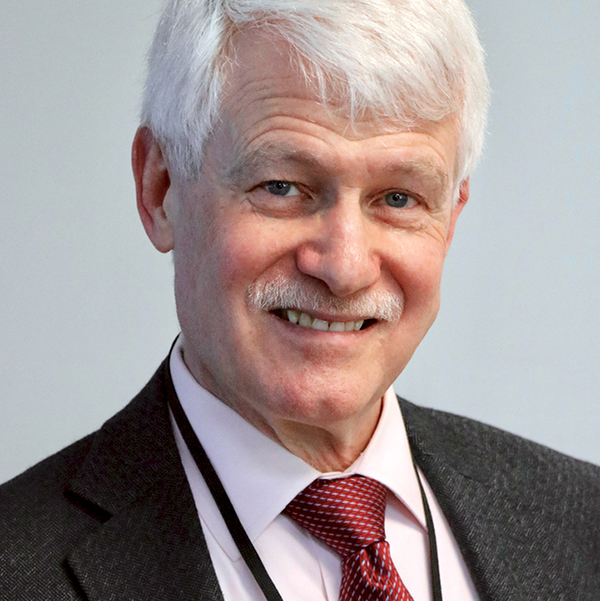
Mel Krajden
Professor, Pathology and Laboratory Medicine, University of British Columbia
Medical Director of the British Columbia Centre for Disease Control Public Health Laboratory

CITF Leadership Group
The CITF Leadership Group included experts from across Canada in matters related to serologic surveillance, immunology, virology, infectious diseases, public health, and clinical medicine. It also included ex-officio members representing agencies of the Government of Canada, including the Public Health Agency of Canada (PHAC), the Canadian Institutes of Health Research (CIHR), and the office of the Chief Scientific Advisor to the Prime Minister, as well as representatives of Provincial-Territorial Ministries of Health, and McGill University (host of the Secretariat).
The CITF Leadership Group played an active role in the leadership of the CITF from the Task Force’s inception in April 2020 and wound down activities in June 2022. The CITF wishes to thank all Leadership Group members for their tireless volunteerism, spending countless hours steering the CITF to help Canada’s response to the COVID-19 pandemic.

Indigenous Advisory Circle
The work of the Indigenous Advisory Circle (IAC) was initiated in 2020 and formally came to a conclusion in 2021. The CITF expresses its deepest thanks to all members for their efforts and contributions. As results from CITF-supported studies emerge bearing on Indigenous communities, the CITF will continue to make efforts to engage Indigenous policy, community, and scientific leaders in discussion of their implications.
Sarah Viehbeck
Sarah Viehbeck, PhD, was appointed as the Chief Science Officer for the Public Health Agency of Canada (PHAC) in 2022. Reporting to the President and working horizontally across the Agency, Dr. Viehbeck is responsible for providing strategic leadership to oversee and support science excellence, science-policy integration and science promotion, as well as re-energizing the scientific vision and capacity toward “Strengthening the Voice of Science” across the PHAC.
Prior to this role, Dr. Viehbeck was the Associate Vice-President Research – Evidence Integration at CIHR. In this role, she was responsible for all science-related strategy and policy development. There, she led the design of a comprehensive suite of programs and initiatives to support CIHR’s mandate, with a priority focus on equity, diversity and inclusion as well as growing and maintaining a strong and sustainable Canadian health research workforce. She also played a key leadership role in the Government of Canada’s COVID-19 response.
Dr. Viehbeck is a former adjunct faculty member at University of Waterloo’s School of Public Health and Health Systems and the University of Ottawa’s Interdisciplinary School of Health Sciences and former Board member of the National Collaborating Centre for Determinants of Health. She has been recognized for her contributions by the Senior Women Academic Administrators of Canada, the Ontario Tobacco Research Unit, the Population Health Improvement Research Network, the Canadian Public Health Association, and through a CIHR President’s Award of Excellence.
Proton Rahman
Proton Rahman, MD, FRCPC, is a Clinician Scientist in St. John’s, Newfoundland. He is a practicing Rheumatologist and a University Research Professor at Memorial University. He was the Associate Dean of Clinical Research at Memorial’s Medical School from 2011 to 2019, and Director of Translational Genomics at the Craig Dobbin Genetics Institute from 2015 to 2019.
Proton’s research expertise is in genetic epidemiology, and he is internationally recognized for his work on better elucidating the genetic basis of complex rheumatic diseases, particularly psoriatic arthritis.
Proton completed his medical school and internal medicine training at Memorial University and rheumatology fellowship at the University of Toronto. His graduate training in genetic epidemiology was also done at University of Toronto.
Since March 2020, he has led the provincial COVID-19 Modeling Team.
David Naylor
Dr. Naylor’s public service also includes chairing three national panels: Canada’s review of public health after the 2003 SARS outbreak, the federal advisory panel on healthcare innovation (2014-15), and the federal review of support for extramural science and research (2016-17). He is an Officer of the Order of Canada, Fellow of the Royal Society of Canada and the Canadian Academy of Health Sciences, and an international member of the US National Academy of Medicine.
Catherine Hankins
Catherine Hankins, MD, PhD, FRCPC, CM, is Professor and Chair (interim) of McGill University’s Department of Global and Public Health at the School of Population and Global Health. A community medicine specialist, she holds an MD (University of Calgary), MSc (University of London, England), and PhD (University of Amsterdam). From April 2020 to December 2022, she co-chaired Canada’s COVID-19 Immunity Task Force. She now advises the Task Force on Knowledge Translation.
Before joining the United Nations in 2002, she had an active research career in Canada and chaired peer review and policy committees in the HIV response. Chief Scientific Adviser to UNAIDS in Geneva for a decade, she led the scientific knowledge translation team focused on ensuring ethical and participatory HIV prevention trial conduct, convening mathematical modelling teams, and supporting country implementation of proven biomedical HIV prevention modalities.
In 2016, she led development of Good Participatory Practice Guidelines for trials of Emerging Pathogens for the World Health Organization (WHO)’s R&D Blueprint. Since 2019, she has been Co-Chair of the Eastern Europe and Central Asia INTERACT Workshops. She was Scientific Chair of Africa’s annual INTEREST conferences on HIV research in resource-limited settings (2014 to 2020), chaired the European and Developing Countries Clinical Trials Partnership’s Scientific Advisory Committee (2017-2022), and chaired the National Institutes of Health (NIH)’s HIV Prevention Trials Network’s Scientific Advisory Group (2012-2021).
She is Amsterdam Institute for Global Health and Development (AIGHD) lead for CAPRISA trials of monoclonal antibodies (CAPRISA 012) and antiretroviral implants (CAPRISA 018) for HIV pre-exposure prophylaxis in young women.
Honorary Professor at London School of Hygiene and Tropical Medicine, England, and Senior Fellow at AIGHD, Dr. Hankins is keenly interested in scientific capacity development and advancing women in global health and science. She was named to the Order of Canada in 2013.
Timothy Evans
Earlier in his career, he was an attending physician of internal medicine at Brigham and Women’s Hospital in Boston and was Assistant Professor in International Health Economics at the Harvard School of Public Health. Dr. Evans has been at the forefront of advancing global health equity and strengthening health systems delivery for more than 20 years. At WHO, he led the Commission on Social Determinants of Health and oversaw the production of the annual World Health Report. He has been a co-founder of many partnerships including the Global Alliance on Vaccines and Immunization (GAVI) as well as efforts to increase access to HIV treatment for mothers and innovative approaches to training community-based midwives in Bangladesh. Dr. Evans received his Medical Degree from McMaster University in Canada and was a Research and Internal Medicine Resident at Brigham and Women’s Hospital. He earned a DPhil in Agricultural Economics from University of Oxford, where he was a Rhodes Scholar.
Theresa Tam
Theresa Tam, MD, was appointed Chief Public Health Officer of Canada on June 26, 2017. She is a physician with experience in immunization, infectious diseases, emergency preparedness and global health security initiatives.
Dr. Tam received her medical degree from the University of Nottingham, UK. She completed her residency in Pediatrics at the University of Alberta and a Scientific Research Fellowship in Pediatric Infectious Diseases at the University of British Columbia. She is a Fellow of the Royal College of Physicians and Surgeons of Canada and has authored over 55 public health publications in peer-reviewed journals. She is also a graduate of the Canadian Field Epidemiology Program.
Dr. Tam has held several senior positions at the Public Health Agency of Canada, including Assistant Chief Public Health Officer and Assistant Deputy Minister for Infectious Disease Prevention and Control. During her 20 years in public health, she has provided technical expertise and leadership on new initiatives to improve communicable disease surveillance, strengthen immunization programs, and enhance health emergency response management and laboratory biosafety and biosecurity. She has played a leadership role in Canada’s response to public health emergencies, including Severe Acute Respiratory Syndrome (SARS), the H1N1 influenza pandemic and Ebola virus disease.
Dr. Tam has served as an international expert on several World Health Organization committees and has participated in multiple international missions related to SARS, pandemic influenza and polio.
Mona Nemer
Dr. Nemer holds a PhD in Chemistry from McGill University and did post-doctoral training in molecular biology at the IRCM and at Columbia University. She is a Fellow of the Royal Society of Canada, a Fellow of the American Association for the Advancement of Science, a Foreign Member of the American Academy of Arts and Sciences and a Member of the Order of Canada. She is also a Knight of the Ordre national du Québec and a Knight of the French Republic’s Ordre national du Mérite.
Howard Njoo
Dr. Njoo has worked for the federal government as a public health physician and medical epidemiologist, while also continuing his practice as a front-line clinician in infectious diseases for over 30 years. Prior to joining the Canadian government, Dr. Njoo was the Associate Medical Officer of Health for the City of Toronto Department of Public Health. He also worked at the Ministry of Health for the province of Ontario. Since joining the federal government in 1996, Dr. Njoo has held a variety of positions in the areas of both infectious and chronic diseases as well as emergency preparedness and response.
Dr. Njoo was involved at the senior management level for the Government of Canada’s response to the SARS (2003) and H1N1 (2009) outbreaks and has extensive international experience, including deployments to Haiti in 2010 post earthquake, and Guinea in 2015 for the Ebola outbreak. He has also been on international missions such as the Joint External Monitoring Mission for the National TB Program in Nepal.
Dr. Njoo is the current Designated International Health Regulations State Party Expert for Canada to the World Health Organization and was the technical lead on the Canadian delegation for the revision of the International Health Regulations (IHR) in 2004-2005. Dr. Njoo has also participated as a team member and has led multiple IHR Joint External Evaluations, including those for the Federated States of Micronesia, Grenada, and Germany.
Dr. Njoo earned his medical degree and a Master’s in Health Science, specializing in community health and epidemiology, from the University of Toronto. He subsequently completed a fellowship and his certification with the Royal College of Physicians and Surgeons of Canada in community medicine.
In addition to his other responsibilities, Dr. Njoo is also a consultant physician at the Ottawa Hospital Tuberculosis Clinic and has an adjunct appointment at the University of Ottawa in the School of Epidemiology and Public Health.
Stephen Lucas
As Senior Associate Deputy Minister (Climate Change) from June 2016 to January 2017, Dr. Lucas led ECCC activities in support of the development and adoption of the Pan-Canadian Framework on Clean Growth and Climate Change.
Before joining ECCC, Dr. Lucas was Deputy Secretary to the Cabinet for Plans and Consultations and Intergovernmental Affairs at the Privy Council Office. From 2013 to 2014, he was Assistant Secretary, Economic and Regional Development Policy, at the Privy Council Office.
As Assistant Deputy Minister, Science and Policy Integration at Natural Resources Canada (NRCan) from 2009 to 2013, he was responsible for strategic policy development related to energy, mineral and forest resources, climate change and clean energy and international and intergovernmental relations. Prior to that, from 2007 to 2009, he was Assistant Deputy Minister, Minerals and Metals Sector, at NRCan, where he provided leadership on innovation, green mining and corporate social responsibility.
Dr. Lucas was a Director General in the Health Products and Food Branch (HPFB) at Health Canada from 2003 to 2007, Senior Director at NRCan for Science, Innovation, Regional and Aboriginal Affairs from 2000 to 2003, and Director of Policy Planning and Coordination in the Earth Sciences Sector at NRCan from 1998 to 2000.
Dr. Lucas started his career as a research scientist at the Geological Survey of Canada in 1988. He has a Bachelor of Science with Honours in Geological Engineering from Queen’s University and a PhD in Structural Geology and Tectonics from Brown University.
Carrie Bourassa
Dr. Bourassa spent over 15 years as a professor of Indigenous health studies in the Department of Indigenous Health, Education and Social Work at the First Nations University of Canada (FNUniv) in Regina.
She is a member of the College of New Scholars, Artists and Scientists of the Royal Society of Canada, public member of the Royal College Council of the Royal College of Physicians and Surgeons of Canada, Board Member of the Health Quality Council of Saskatchewan and was appointed as a member of the International Research Advisory Board for the Health Research Council of New Zealand in 2019. She also co-moderates CanCOVID #theme-indigenousresearch and is a member of the Saskatchewan COVID19 Evidence Support Think Tank supporting Indigenous health rapid response needs.
Dr. Bourassa is Métis and belongs to the Riel Métis Council of Regina Inc. (RMCR, Local #34).
Vivek Goel
Vivek Goel, CM, obtained his medical degree from McGill University and completed post-graduate medical training in Community Medicine at the University of Toronto (UofT). Dr. Goel obtained an MSc in Community Health from UofT and an MS in Biostatistics from Harvard University School of Public Health. His research has focused on health services evaluation and the promotion of the use of research evidence in health decision-making.
He was a Founding Scientist at IC/ES and Founding President and CEO of Public Health Ontario from 2008 until 2014. He held a number of senior administrative roles at UofT before becoming President and Vice-Chancellor of the University of Waterloo on July 1, 2021.
In addition to being on the CITF Leadership Group, he is Chair of the Expert Advisory Group on the development of a Pan-Canadian Health Data Strategy, and Chair of the Board of the Canadian Institute for Health Information.
Philippe Gros
Dr. Gros has been an International Scholar of the Howard Hughes Medical Institute, a Distinguished Scientist of the Canadian Institutes of Health Research and is a Distinguished James McGill Professor of Biochemistry and Genetics. He has received the Wilder Penfield Prize for Health Sciences (Prix du Quebec), the Canada Council Killam Prize for Health Research, and is an Officer of the Order of Canada. Dr. Gros acts as an advisor for several organizations, including the Burroughs Welcome Fund and the Canadian Institutes of Health Research. Dr. Gros is experienced in the biotechnology sector, including co-founder of PhageTech, Emerillon Therapeutics (Xenon), and Corbin Thera.
Scott Halperin
Dr. Halperin has also served on provincial, national, and international committees of the Government of Nova Scotia, Public Health Agency of Canada, US Centers for Disease Control and Prevention, and the World Health Organization. These committees provide fora for the dissemination of research findings to policy- and decision makers, assess existing and proposed vaccine programs, and make recommendations on the prioritization of these programs. Dr. Halperin’s research focuses on the diagnosis, treatment, and prevention of pertussis and other vaccine-preventable diseases.
Scott Halperin is a Co-chair of the Vaccine Surveillance Reference Group (VSRG).
Charu Kaushic
Dr. Kaushic has a PhD in Immunology and did her post-doctoral training in mucosal immunology. Since her faculty appointment at McMaster in 2002, she has done extensive teaching and training in immunology. She has built an interdisciplinary research program in women’s reproductive health, specifically basic, clinical and translational research examining susceptibility and immune responses to sexually transmitted viruses, HIV-1 and HSV-2.
Prior to joining CIHR, Dr. Kaushic’s research program was funded by CIHR, Canada Foundation for Innovation, Canadian Foundation for AIDS Research and the Ontario HIV Treatment Network (OHTN). She has received numerous national and international awards including a Rockefeller post-doctoral fellowship, CIHR New Investigator Award, OHTN Research Scholar award, OHTN Research Chair award, and the 2017 American Journal of Reproductive Immunology Research Excellence Award.
James D. Kellner
He has served on the Alberta Advisory Committee on Immunization since 2002 and was Chair for a decade. He serves on the pneumococcal working group of the National Advisory Committee for Immunizations (NACI). He helped lead the local response in Calgary to the H1N1 influenza pandemic in 2009-2010. In the early 2000s, he contributed to the development of national and provincial pandemic influenza plans.
Dr. Kellner is a member of the University of Calgary COVID-19 Analytic and Strategy Group and the Alberta Serology Advisory Group. He is leading the multi-faceted Alberta Childhood COVID-19 Cohort (AB3C) Study, is a Co-Principal Investigator on the Canadian Immunization Research Network COVID-19 Vaccine Readiness Project, and is Co-PI for Alberta on the Canadian National Vaccine Safety Network (CANVAS) COVID-19 vaccine project.
Susan Kirkland
Dr. Kirkland plays a leadership role on a number of landmark studies of international repute, including the Canadian Longitudinal Study on Aging, a 20-year study of 50,000 older adults in Canada funded by the Canadian Institutes of Health Research (CIHR) and the Canada Foundation for Innovation (CFI). She also currently leads studies in the areas of healthy aging, frailty, HIV and aging, cognitive function and aging, access to health services and transitions in care, health inequalities in aging, technologies to support aging in place, and person-centred approaches to engaging older adults in research. She has published over 170 peer-reviewed papers, given over 150 invited presentations, and 250 national and international conference presentations. She has held over 100 research grants totaling $95M.
Dr. Kirkland has participated in national advisory boards including CIHR’s Institute Advisory Boards for the Institute of Aging and the Institute of Population and Public Health; the Board of Governors of the Northwood Group of Companies, a non-profit continuing care organization serving residents of Nova Scotia; and the Board of Directors for AGE-WELL, a national Network Centre of Excellence.
Gary Kobinger
In 2016, Dr. Kobinger became the director of the Centre for Research in Infectious Diseases at Laval University in Quebec City, where he continues to run a research lab and is involved in several clinical trials for vaccines against Zika, MERS and influenza. He also manages projects for the development of a VSV-based HIV vaccine, a DNA-based CCHF vaccine and a DNA-based COVID-19 vaccine.
Dr. Kobinger has over 300 scientific publications and has been interviewed by media outlets such as BBC, CBS 60 Minutes, NBC, NPR, Washington Post, CBC, and many others, and continues to be called upon to provide his expertise to National Institutes of Health, World Health Organization and other regulatory agencies worldwide.
Mel Krajden
His laboratory research involves the application of molecular techniques to diagnose viruses, assess correlates between infection and clinical disease, and track microbial infections for epidemiological purposes. His clinical research involves the integration of hepatitis prevention and care services using linked laboratory and administrative data to help understand how to measure population level health outcomes for policy making.
Dr. Krajden spearheads the BC-Hepatitis C Tester’s Cohort (BC-HTC). The BC-HTC contains de-identified health information on ~3.5 million British Columbians tested for HCV, HIV, HBV & TB. It includes almost all: lab tests/results, medical visits, hospitalizations, prescriptions, cancer outcomes, and mortality outcomes. With ~30 years of longitudinal information, the BC-HTC is able to determine health outcomes by different groups while adjusting for confounders. The goal is to drive value-based practices from the bench to population level — translating discovery into practice across a range of health-related questions.
He has extensive clinical trials expertise and has received CIHR funding in the fields of human papillomavirus, HIV, hepatitis C virus and COVID-19. He is also a Co-PI/Mentor for CIHR funded Canadian Hepatitis C Network (CanHepC) and has >286 publications.
Mel Krajden is a member of the Vaccine Surveillance Reference Group (VSRG).
Christie Lutsiak
Dr. Lutsiak has worked at Alberta Health for eight years. In her role as Director within the Research & Innovation Branch, she oversees development of health research and innovation policy and strategy. She also works with health system, academic, and industry partners to support research and accelerate innovation in health care. Currently she serves as COVID-19 Testing Lead for Alberta Health.
Richard Massé
Finally, he was appointed in 2012 as Regional Director of Public Health for Montreal until April 2018. He currently works as a medical advisor to the that same organization (Direction régionale de santé publique-Montréal) in infectious diseases and to regional health and social services (Régie régionale de la santé et des services sociaux) of Nunavik for the tuberculosis program. Since March 2020, he has been a strategic medical advisor to the Quebec Health Ministry (MSSS) regarding the COVID-19 pandemic.
Allison McGeer
Her research interests are in the prevention of healthcare-associated infection, use of epidemiology to reduce the burden of infectious diseases and antimicrobial resistance in adults, and adult immunization. She has worked on outbreak investigations for SARS-COV-1 in Toronto, and MERS in the Kingdom of Saudi Arabia, and in infection prevention for World Health Organization during the 2014/15 Ebola outbreak in West Africa.
Since January, 2020, she has been working on research related to understanding the clinical features and epidemiology of COVID-19, and the safety and effectiveness of COVID-19 vaccines.
Deborah Money
Dr. Money was the Executive Vice-Dean of the Faculty of Medicine at UBC until June 2020. She was previously the inaugural Executive Director of the Women’s Health Research Institute (WHRI), Vice-President, Research, for the BC Women’s Hospital, and a past President of the Infectious Diseases Society of Obstetrics and Gynecology (IDSOG). She has published more than 200 peer reviewed publications and has received more than $29M in peer-reviewed funding.
Gina Ogilvie
Currently, Dr. Ogilvie is Principal Investigator on over $15 million in grants from Canadian Institutes of Health Research, National Institutes of Health, and Michael Smith Foundation for Health Research, among others. Her research, clinical and policy expertise focuses on the public health and clinical aspects of testing and interventions for reproductive tract infections, HPV screening and the HPV vaccine, and her findings have been highly influential in shaping public health policy for screening, testing and treatment in Canada and globally. She currently leads several large clinical trials on screening and testing both in Canada and in global settings including Uganda.
Dr. Ogilvie sits on many national and global advisories including for the Canadian Partnership Against Cancer, Public Health Agency of Canada, the World Health Organization, and Ministries of Health globally, providing guidance on optimal testing and screening policies for sexually transmitted infections (STI) and HIV, as well as on HPV and STI vaccine policy and programming. Dr. Ogilvie is the recipient of many honours, including YWCA Woman of Distinction (2018) and Provincial Health Officer’s Award for Excellence in Public health (2015).
Jutta Preiksaitis
Jutta Preiksaitis, MD, is a virologist, transplant infectious diseases (TxID) physician and Professor Emerita, Department of Medicine, University of Alberta. She obtained her MD from McMaster University, then trained in internal medicine and infectious diseases at the Universities of Toronto, Manitoba and Alberta and transplant infectious diseases (TxID) at Stanford University. She developed and led the first Canadian TxID service at the University of Alberta Hospitals and the first TxID Community of Practice of the American Society of Transplantation. She has regularly participated in international guideline development related to the prevention and management of infectious complications after solid organ transplantation.
Dr. Preiksaitis was the Medical Director of Alberta’s Provincial Public Health Laboratory (2000-2009) during the SARS, West Nile virus, and H1N1 influenza epidemics and participated in Canadian modeling of disease burden associated with hepatitis C virus and transfusion-transmitted infection related to emerging pathogens.
Her research is focused on the epidemiology and pathogenesis of infection transmitted by organ transplantation and blood transfusion, as well as on quality improvement in clinical diagnostic virology. Dr. Preiksaitis has participated in national committees related to blood, tissue and organ donor safety standards and public health laboratory coordination.
Caroline Quach-Thanh
Dr. Quach is the current Chair of the National Advisory Committee on Immunization (NACI). She was the President of the Association of Medical Microbiology and Infectious Disease – Canada’s (AMMI) from 2014-2016. She was inthronized as a Fellow of the Canadian Academy of Health Sciences and of the Society for Hospital Epidemiology of America. She was selected as one of the 2019 Canada’s Most Powerful Women (2019 Top 100 Award Winner in the Manulife Science and Technology category).
Caroline Quach-Thanh is Co-chair of the Vaccine Surveillance Reference Group (VSRG).
Rosann Seviour
Gail Tomblin Murphy
To date, Centre projects have been conducted in the Americas and Africa. She has been involved in more than 100 funded research projects (72 as principal or co-principal investigator) representing over $27 million in provincial, national, and international funding, with approximately $16 million as a principal or co-principal investigator. She is an effective and active proponent of partnerships as evident by her 30 years at Dalhousie University, where she became a strong researcher, teacher, mentor and leader, including taking on the roles of Director of the School of Nursing and Assistant Dean of Research in the Faculty of Health.
In 2019, Dr. Tomblin Murphy was inducted into the American Academy of Nursing as a Fellow, and she is a member of the Canadian Institutes of Health Research Institute of Population and Public Health Advisory Board. As the Vice President of Research, Innovation and Discovery and Chief Nurse Executive of Nova Scotia Health, she has been an active champion of innovation in healthcare, leading teams and partners to seek creative solutions and agile processes to address the challenges of the province’s health system in order to deliver the best care for the best health outcomes.
Paul Van Caeseele
He has been working as a pediatric infectious diseases consultant and travel health and tropical medicine specialist with the Winnipeg Regional Health Authority (WRHA) since 2001. Dr. Van Caeseele has been a professor at the University of Manitoba in the Department of Medical Microbiology & Infectious Diseases since 2000, and has been cross-appointed in Pediatrics & Child Health since 2005. He is past Program Director of the University of Manitoba Medical Microbiology Training Program and past Chair of the Royal College of Physicians and Surgeons of Canada Examination Board in Medical Microbiology. He has sat on the Board of Directors of Diagnostic Services Manitoba since 2011 and on the Kuwait Institute of Medical Specialization Examination Board for Medical Microbiology since 2017. He is currently the provincial/territorial co-Chair of the Canadian Public Health Laboratory Network.
Shelly Bolotin
Coming soon
Marguerite Cameron
She has been working in public health and with the PEI Chief Public Health Office since 2016. Prior to that, she was a Research Scientist with Maritime Quality Milk, Atlantic Veterinary College, and University of Prince Edward Island.
Catherine Elliott
She previously held the positions of Federal Field Epidemiologist with the Public Health Agency of Canada and Physician Epidemiologist at the BC Centre for Disease Control (BCCDC). Her research at BCCDC included evidence-based guidelines for public health response to wildfires, health effects of urban air pollution and wildfire smoke, health impact assessment, and environmental health surveillance. In Yukon, she holds a generalist Medical Health Officer portfolio including communicable disease, chronic disease, environmental health, and health policy.
Dr. Elliott is an Assistant Clinical Professor at the University of British Columbia and a fellow of the Royal College of Physicians and Surgeons of Canada in Public Health and Preventive Medicine.
Richard Garceau
He founded and developed the New Brunswick Virology Diagnostic Reference Centre at the Dr. Georges-L.-Dumont University Hospital Centre. He directs the development and delivery of diagnostic tests in virology, viral serology, molecular virology, and molecular microbiology for the province of New Brunswick.
He is a member of the Laboratory Director Council of the Canadian Public Health Network of the Public Health Agency of Canada, various working groups and committees of the National Microbiology Laboratory, and the Canadian National Committee for the Eradication of Poliovirus Type 2.
His research interests are the diagnosis of viral infections by antibody detection and the use of molecular methods.
He is a member of the Executive Committee of the New Brunswick Medical Training Centre and a clinical professor at the Faculty of Medicine of the Université de Sherbrooke, representing his province. He has been involved in the training of residents in the field of medical microbiology and infectious diseases for many years.
Heather Hannah
Jessica Minion
Since 2012, Dr. Minion has served as the Division Head of Microbiology & Infection Prevention and Control in Regina, Saskatchewan. In 2017, she accepted the role of Acting Medical Director of the Roy Romanow Provincial Laboratory, which has transitioned into the Provincial Clinical Lead of Public Health, in the Department of Laboratory Medicine of the amalgamated Saskatchewan Health Authority. In this capacity, she oversees laboratory testing for diseases and organisms of public health interest in Saskatchewan, holds responsibility for the laboratory response to issues of public health concern, and coordinates with both provincial and national organizations to enhance and promote the impact of public health laboratory activities and services.
Michael Patterson
Field Studies Objectives
- Assess the prevalence of SARS-CoV-2 antibodies across the full life-course of Canadians, ranging from children to elderly people, and at appropriate intervals during the CITF’s two-year operational period, with attention to geographical representation where possible;
- Investigate the evolution of immunity over time among populations that have been infected with SARS-CoV-2 across a spectrum of disease severity, from asymptomatic to symptomatic, including infections requiring and not requiring hospitalization;
- Assess the levels and trends of SARS-CoV-2 infection and immunity among vulnerable communities, racialized populations, and across the diverse settings in which they live;
- Assess the levels and trends of SARS-CoV-2 infection and immunity among public-facing occupations, including health care workers and others working outside the home, and priority populations at greater risk of acquiring SARS-CoV-2 infection.
Immune Science Objectives
- Advance the understanding of natural immunity and correlates of protection in cross-sectional, observational, and longitudinal studies to both inform the status of individual and population-level protection, as well as to define qualitative immune responses; and,
- Examine the immune correlates of disease severity in comparative studies to inform the identification of prognostic markers.
Immune Testing Objectives
- Accelerate the validation of serological tests, in close collaboration with the National Microbiology Laboratory (NML);
- Standardize and cross-validate selected tests to assess relative performance, in close collaboration with the NML and provincial public health labs;
- Evaluate the efficacy and efficiency of different means of testing Canadians, including venepuncture, dried blood spot, and saliva specimens;
- Optimize pooling and procurement of tests to enable Canada-wide testing;
- Evaluate opportunities to test for neutralizing antibodies using a surrogate or pseudo-virus with limited virulence compared to SARS-CoV-2; and,
- Determine best practices for assessing cell-mediated immunity using high throughput assays.



